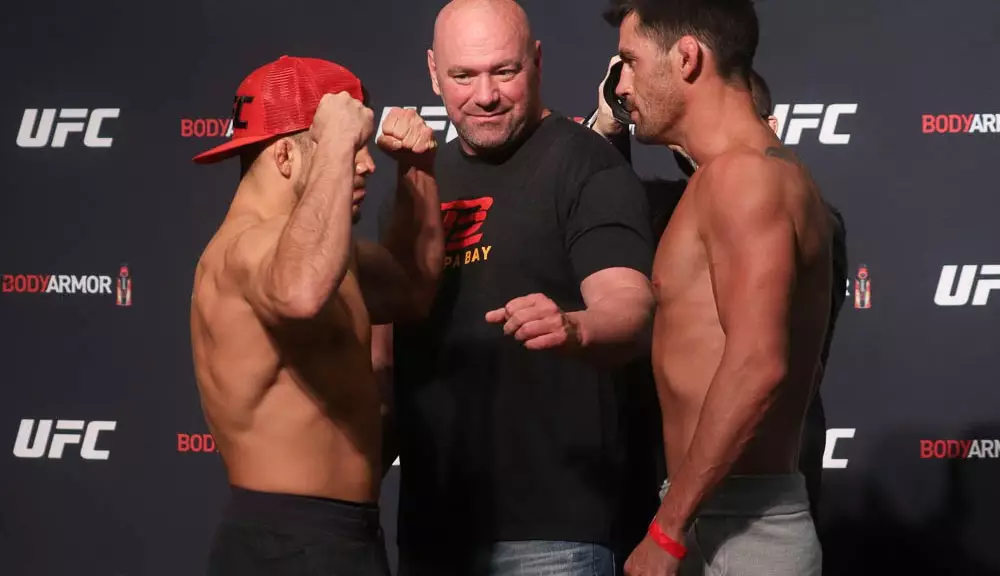Dominick Cruz, a seasoned fighter in the world of mixed martial arts (MMA), is making headlines once more as he prepares for his return to the Octagon. After an arduous two-year hiatus due to injuries, Cruz is set to face Rob Font in the co-main event of UFC Fight Night 252, scheduled for February 22 at the Climate Pledge Arena in Seattle. This matchup is a significant moment not only for Cruz but for the bantamweight division, as he looks to reclaim his standing among the elite fighters in the sport.
With this fight looming, Cruz finds himself on the same fight card as former champion Henry Cejudo. Cejudo is slated to headline the event against Song Yadong, yet Cruz has publicly questioned the rationale behind this pairing. At UFC 249, Cejudo delivered a decisive TKO victory over Cruz, ultimately leading to Cruz’s title loss. Ambitiously, Cruz had hoped for a rematch, viewing it as a logical and compelling fight that would add depth to the event. However, Cruz’s aspirations were met with mixed signals from UFC matchmakers and Cejudo’s camp, leaving him frustrated and uncertain.
The crux of Cruz’s concerns lies in the communication—or lack thereof—between UFC matchmakers and fighters. He expressed his bewilderment over the conflicting statements from Sean Shelby and Cejudo’s manager, Ali Abdelaziz. While Shelby claimed that Cejudo was not interested in a rematch, Abdelaziz suggested that the UFC’s matchmakers weren’t inclined to facilitate that fight. This discrepancy underscores a larger issue within the UFC: a communication gap that can lead to fighters feeling sidelined and devalued. Despite this landscape, Cruz acknowledges that he ultimately must take what opportunities come his way, even if they do not align with his preferences.
Cruz’s comments also touch on an essential aspect of the UFC’s operational strategy—marketability. In a sport that thrives on personalities and rivalries, fighters like Conor McGregor and Jon Jones are afforded unique opportunities due to their drawing power. Cruz implies that other fighters, particularly those without a massive fanbase, may not receive the same level of attention or favorable matchups. This reality highlights an inherent challenge for seasoned fighters: they can risk being overlooked despite their experience and skill if they do not possess the magnetic appeal that captivates fans and promoters alike.
The notion of Cruz and Cejudo sharing a fight card raises questions about intentionality versus coincidence in matchmaking. Cruz suggests that the UFC’s matchmakers might be playing a game of strategy by positioning fighters with an existing narrative against one another, potentially to enhance drama and excitement for the audience. While Shelby may deny any deliberate orchestration, the resulting tension between Cruz and Cejudo could serve to fuel anticipation for their eventual clash—whenever that may occur. This aspect of UFC matchmaking adds another layer of complexity to fighters’ career trajectories, shaping rivalries that can be captivating for fans.
As Cruz gears up for his bout against Rob Font, he must navigate this complex landscape that encompasses opportunity, communication challenges, and the UFC’s marketing strategies. While his frustration regarding the matchmaking process is evident, his focus remains firmly on his performance in the Octagon. Cruz’s resolve to make a mark post-layoff could very well redefine his legacy within the sport. Ultimately, the fanbase and followers of MMA will be watching closely as he tackles the evolving dynamics of his profession, all while ensuring that he remains a contender in the ever-competitive bantamweight division.

